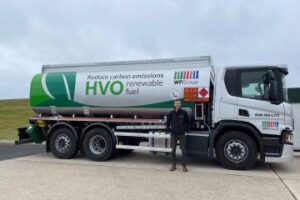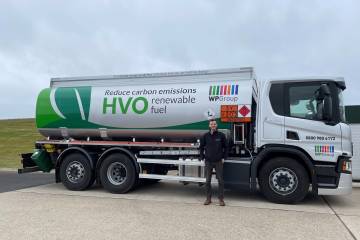The Airport Carbon Accreditation (ACA) scheme has awarded the UK‘s Farnborough Airport as Level 4+, the highest level of accreditation for carbon management at ACA. In 2018, the privately owned facility became the first business aviation airport to achieve ACA’s Level 3+ carbon-neutral status.
Last July, Farnborough Airport committed to reaching net-zero controllable carbon emissions by 2030 under what it calls its Net Zero Roadmap, with a goal of achieving a 91 percent reduction in all emissions generated from the airfield. As part of this commitment, it introduced permanent supplies of sustainable aviation fuel and, for a trial period last summer, offered this to aircraft operators for the same price as jet-A.
The London-area airport has been increasing the availability of electrical ground power units for aircraft and its use of electric fleet vehicles. It has also been transitioning its diesel-powered cars on-site to use hydrotreated vegetable oil, which it said can cut net greenhouse gas emissions by up to 90 percent as it is produced from 100 percent sustainable feedstock such as used cooking oil and plant, food, and animal waste. The fuel has a longer storage life and has reduced nitrous oxide and tailpipe emissions.
In addition, a four-bay hangar that Farnborough Airport started construction last year is being built to the latest standards of the Building Research Establishment’s Environmental Assessment Method.
ACA is a global carbon management certification program for airports, independently assessing and recognizing their efforts to manage and reduce carbon emissions through six levels of certification. “Advancing our carbon accreditation status from 3+ to 4+ is a further stride in supporting our goal to be recognized as a global sustainability showcase for airports,” said Farnborough Airport CEO Simon Geere.



